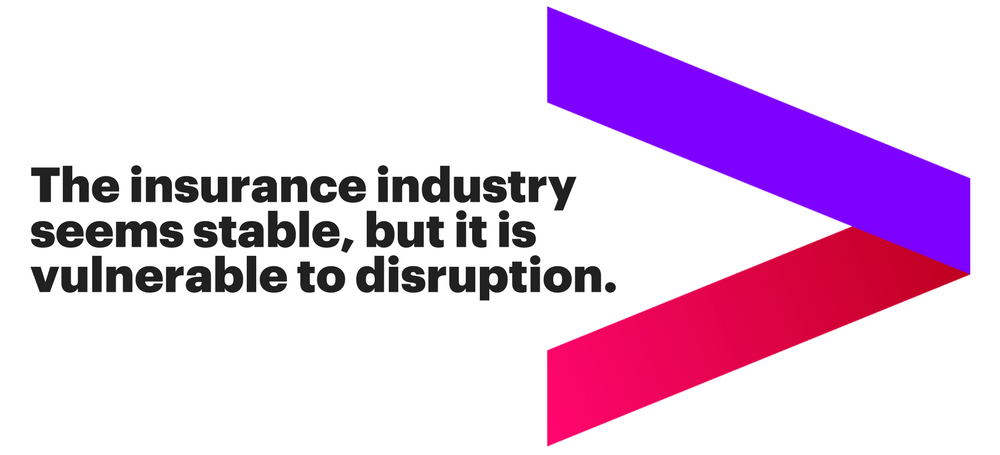Insurers cannot afford to be complacent when disruption has upended other industries. The industry can, and must, embrace change and the future-fearlessly.
Insurance hasn’t changed much in 200 years. It’s still about capital placed against risk. It’s still about creating tailored products for customers. It’s still about using information to sell through channels, to generate returns for a company. Except that capital now includes venture capital and peer-to-peer funding. Risk now includes cyber, pandemic, micro. Tailored products? Think episodic, pay-as-you-go, parametric. Information? Humanity produces 2.5 quintillion bytes of data every day (a quintillion has 18 zeroes). Customers span millennials and high-net-worth boomers, each of whom expects personalized service. Insurance hasn’t changed much in 200 years, but everything around it has. At its highest level, the insurance industry appears stable. Profits are solid, with average pre-tax RoE levels from 2010 to 2016 between 10% and 12% globally. Company rankings are stable, and share price performance is solid across the globe. That sentiment is confirmed by the Accenture Disruptability Index, a global, cross-industry study of how incumbent industries will likely fare in the face of disruption. On a scale of zero to one, with zero being minimally disrupted and one being highly disrupted, insurance scored 0.37. See also: Time to Formalize Insurance Career Path The study also identified four distinct periods of disruption, each with its particular implications and corrective actions. Insurance is in the “vulnerable” period of disruption, characterized by structural inefficiencies and low innovation that lead to low productivity. These pressures compress profitability but create a high barrier to entry that can hold off disruption—for now. Insurers cannot afford to be complacent. The industry’s future disruptability scored 0.68—above the median of 0.57 and among the highest scores in the study. An estimated 30% to 40% of EBITDA is projected to be at risk by 2020, and the industry has already experienced significant disruption. Moreover, executives know that innovation is essential not just to remaining competitive but to surviving.
To fend off disruption, insurers need to take targeted action. They must optimize to address structural productivity and inject new digital technologies to upgrade core offerings at lower cost. This last point is worth repeating: Core transformation is critical to fending off disruption. I’ll keep coming back to this throughout this blog series, as we discuss ways to transform the core, and how doing so can fuel innovation.
Feel the fear—and make change
Insurance is at the edge. It’s vulnerable to disruption and under threat of being made redundant if it continues to bask in the status quo. But insurance is not the only industry caught unprepared. Accenture research found that 93% of chief strategy officers agreed that they will be disrupted within five years—but only 20% feel highly prepared to deal with it.
What’s more, longevity comes with perks. Insurers have data, distribution channels and innovation practices that many startups would envy. Insurers are more than capable of turning disruption into an opportunity.
Over the course of this blog series, I’ll explain how insurers can meet disruption head-on. How they can create efficiencies in their core business and innovate to create revenue streams for the future. How to not just meet customer expectations, but exceed them. Why legacy systems don’t have to be an obstacle to change. And how to make the wise pivot to become an organization that is equipped for success in a digital economy.
See also: Unfair Perception of Insurance
Insurance hasn’t changed much in 200 years, but everything around it has. The insurance industry can, and must, embrace the future—fearlessly.
Insurers cannot afford to be complacent. The industry’s future disruptability scored 0.68—above the median of 0.57 and among the highest scores in the study. An estimated 30% to 40% of EBITDA is projected to be at risk by 2020, and the industry has already experienced significant disruption. Moreover, executives know that innovation is essential not just to remaining competitive but to surviving.
To fend off disruption, insurers need to take targeted action. They must optimize to address structural productivity and inject new digital technologies to upgrade core offerings at lower cost. This last point is worth repeating: Core transformation is critical to fending off disruption. I’ll keep coming back to this throughout this blog series, as we discuss ways to transform the core, and how doing so can fuel innovation.
Feel the fear—and make change
Insurance is at the edge. It’s vulnerable to disruption and under threat of being made redundant if it continues to bask in the status quo. But insurance is not the only industry caught unprepared. Accenture research found that 93% of chief strategy officers agreed that they will be disrupted within five years—but only 20% feel highly prepared to deal with it.
What’s more, longevity comes with perks. Insurers have data, distribution channels and innovation practices that many startups would envy. Insurers are more than capable of turning disruption into an opportunity.
Over the course of this blog series, I’ll explain how insurers can meet disruption head-on. How they can create efficiencies in their core business and innovate to create revenue streams for the future. How to not just meet customer expectations, but exceed them. Why legacy systems don’t have to be an obstacle to change. And how to make the wise pivot to become an organization that is equipped for success in a digital economy.
See also: Unfair Perception of Insurance
Insurance hasn’t changed much in 200 years, but everything around it has. The insurance industry can, and must, embrace the future—fearlessly.







